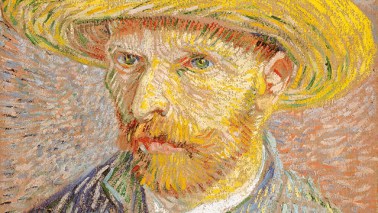I was looking the other day at a video of the artist Celia Paul in conversation with the curator of her recent exhibition at the Huntington Library in California. The image projected there of a reserved and quietly-spoken woman, hesitant, diffident and patently ill at ease in the spotlight, left me very unprepared for the raw honesty and openness of this memoir.
Two early stories give an idea of what lies ahead. The first is of her five-year-old self, the youngest so far in a family of four daughters of a missionary father in India, making herself seriously ill with jealousy on the arrival of a fifth sister. She resolved, she says, to die, and is still convinced that by an act of will she brought on leukaemia, resulting in the removal of the entire family from India so that she could be treated at Hammersmith Hospital.
Some eight years later, her father now head of a religious community in Devon, Paul was at boarding school nearby. There she developed a close relationship with another girl, fuelled by an intensely competitive obsession with art. Driven to succeed, Paul worked furiously, furtively and secretly; ditched the friendship, astonished the art teacher and blazed a trail to the Slade at the age of 16.
The ferocity and iron will that were clearly there from the start have been either the background or the foreground of all her relationships and the core that has enabled her to emerge strong from a lifetime of emotional dilemma. And she wants her experience to speak to other young women in her situation. ‘One of the main challenges I have faced as a woman artist,’ she writes, ‘is the conflict I feel about caring for someone, yet remaining dedicated to my art in an undivided way.







Comments
Join the debate for just £1 a month
Be part of the conversation with other Spectator readers by getting your first three months for £3.
UNLOCK ACCESS Just £1 a monthAlready a subscriber? Log in